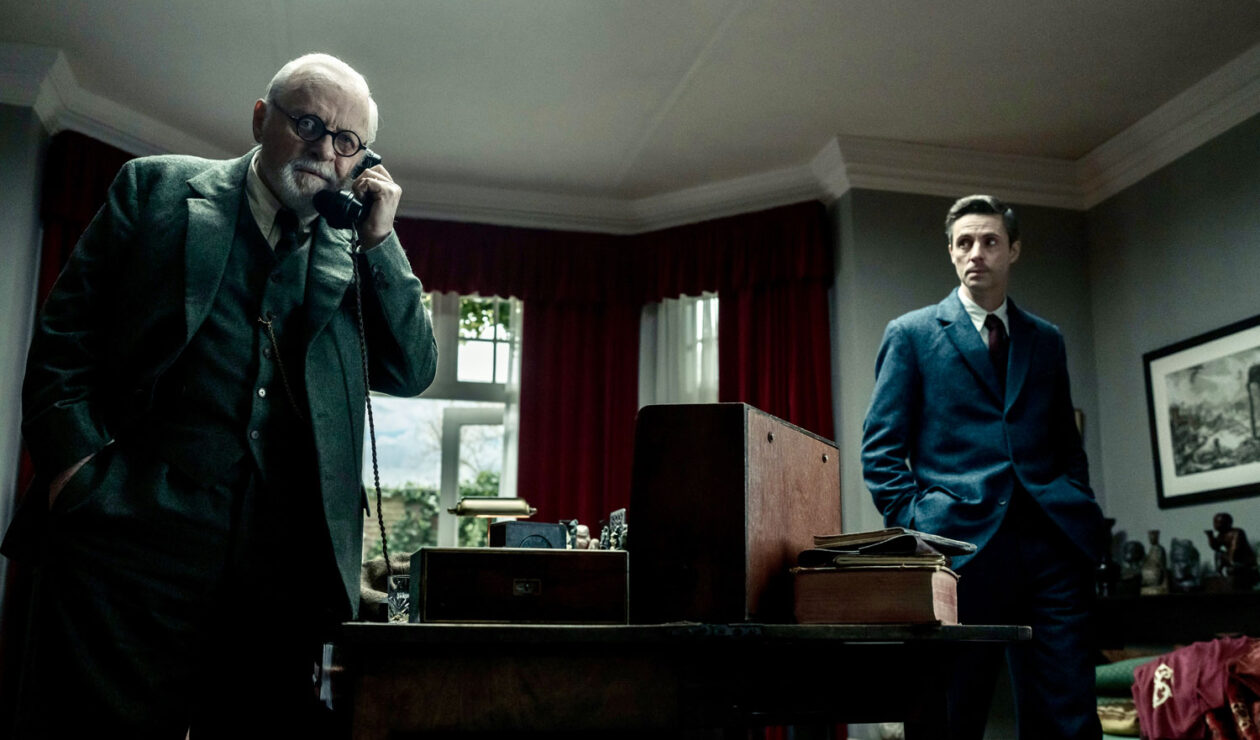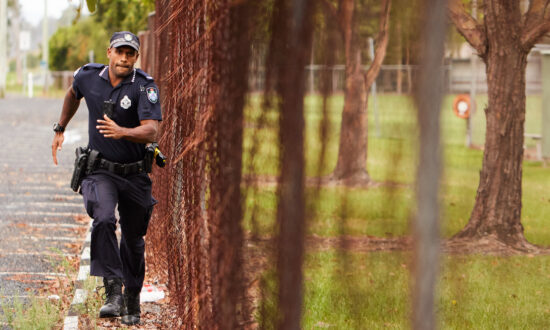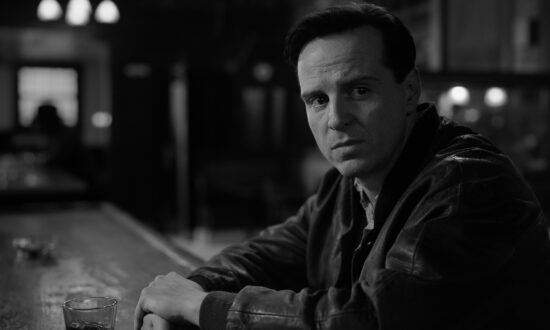Hitler is on the march; Germany has ignored an ultimatum and Britain is at war. In this doomsday atmosphere of one devastating war followed quickly by another, an Oxford English don, author CS Lewis, visits the ailing father of psychoanalysis, Sigmund Freud, to talk about God and life.
Freud, played with the air of crotchety absent-mindedness Anthony Hopkins has finessed in recent roles, pretends not to have read Lewis’s book, The Pilgrim’s Regress, a takedown of John Bunyan’s Pilgrim’s Progress written soon after Lewis converted to Christianity. Lewis’s faith challenges Freud’s world view that behaviour is driven by subconscious memories and desires, not God.
So far, so dry. And a cinematic gear change is needed to take on a film which is more of a BBC play in which two men lock horns over their beliefs. That need not be bad, but it does demand an adjustment.
Lewis, played by Matthew Goode – last seen swapping spells with Teresa Palmer in the television series A Discovery of Witches – presents as an awkward, pompous don in an odd relationship with the mother of a friend who died next to him in World War I. He has yet to write The Chronicles of Narnia but his primal dreams about a forest are directing him there.
Freud is fatally ill with oral cancer and has textbook paternal control over his beloved daughter Anna (German actress Liv Lisa Fries), who rushes away from her work and life to tend to his needs. The presence of Anna, a paediatric psychiatrist pioneering a new understanding of how a child’s mind works, is a distraction and a ray of light that at least gets us out of the room.
The film struggles throughout to rise above its origins as an airless play as war clouds the conversation in Freud’s London house, modelled as far as possible on his apartment in Vienna. “Must be more of God’s mysterious ways,” Freud sneers while listening to the casualty count from the latest Luftwaffe attack.
He and Lewis are civil but not friendly, and both have daddy issues. Freud, who dominates events, says the root of lesbianism is the father yet psychoanalyses Anna, who is gay. Lewis, who is as cold as a fish, lost his mother young and is in love with a much older woman.
Lewis really did meet and discuss religion with the great author and philosopher JRR Tolkien, and their discussion about Christianity – and Tolkien’s insistence to Lewis that it rose above myth because Christ walked among us – are included here. And an English don really did meet Freud, although whether it was Lewis we do not know.

Get InReview in your inbox – free each Saturday. Local arts and culture – covered.
Thanks for signing up to the InReview newsletter.
“Let us love our neighbours as ourselves; what a wonderfully simple-minded imbecilic impossibility that was,” Freud scoffs as bombs start raining over London. It is a shame Goode, a lesser presence on screen than the mighty Hopkins, fails to mount a convincing response to the burning question of why, if God exists, does he allow such evil? Coming from a man as damaged by war as Lewis was, it might have been worth hearing.
Freud’s Last Session is in cinemas now.
Support local arts journalism
Your support will help us continue the important work of InReview in publishing free professional journalism that celebrates, interrogates and amplifies arts and culture in South Australia.
Donate Here




